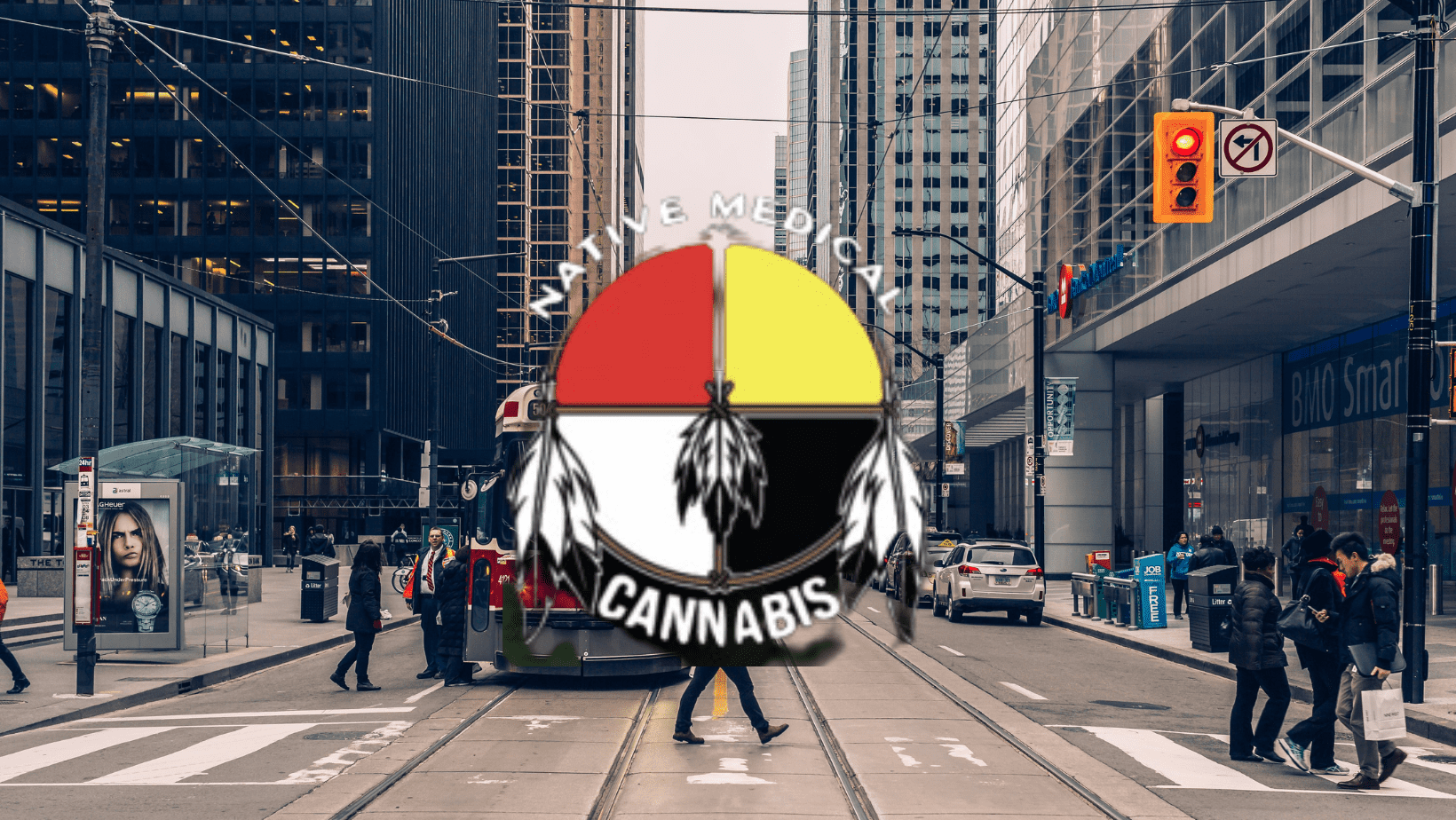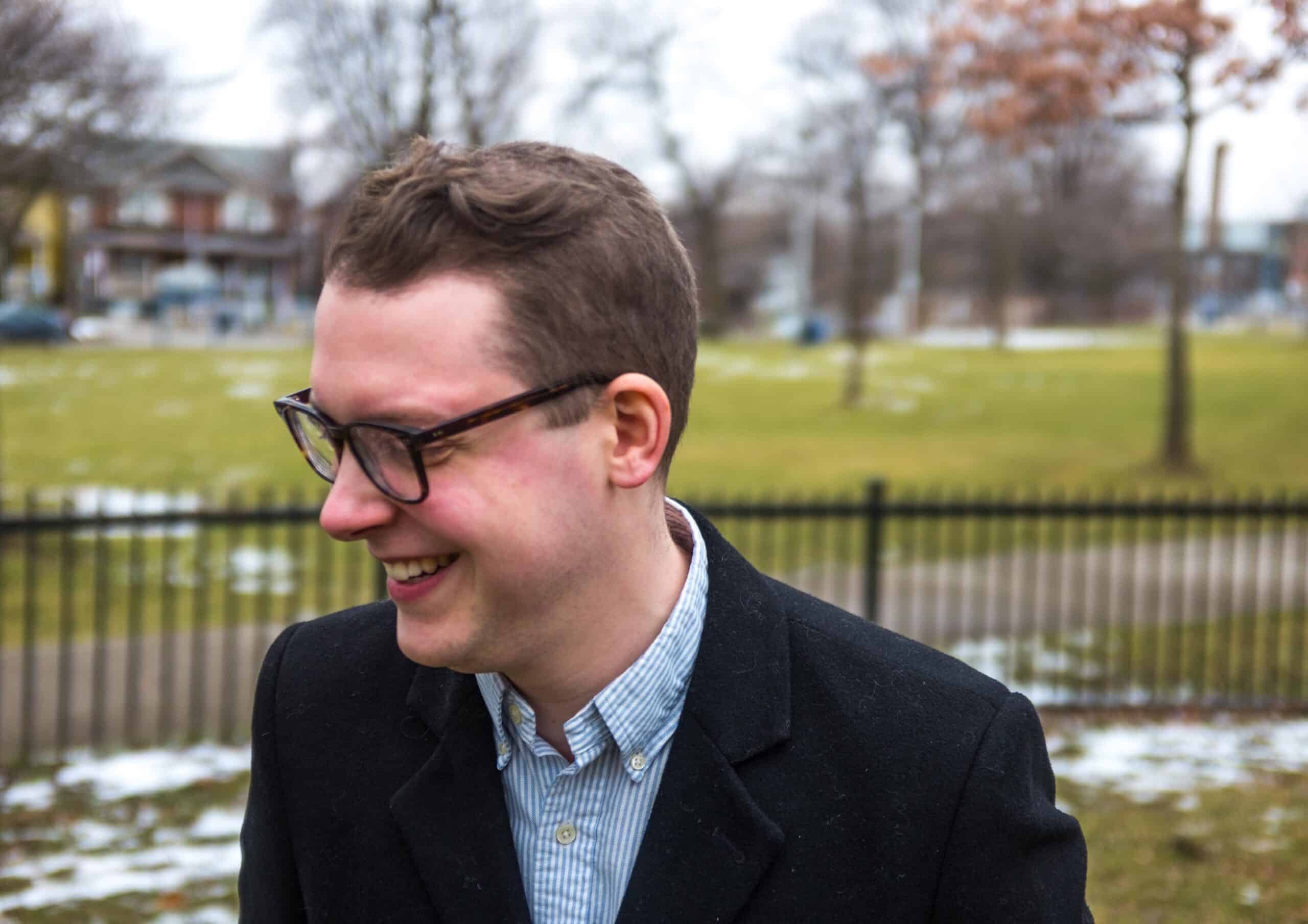Canada has legal weed, but not every seller is opting into the system.
Some Indigenous-run pot shops reject the colonial licensing regime, arguing that what most know as “Canada” is still their land — and they should have jurisdiction over it.
“This store is operated by sovereign people on sovereign land,” reads the window of the Mississaugas of the Credit Medicine Wheel on Toronto’s St. Clair Avenue. “We are exercising our constitutional and inherent rights.”
It’s a strategy that may run up against municipal enforcement, which has promised to “take action” against unlicensed shops.
The stores are “seed-to-sale Indigenous,” they say, meaning everyone from the grower to the cashier is Indigenous.
Customers can walk in off the street and pick up a joint or some flower, just like any other pot shop. The inside is clean and professional, and the budtenders are helpful and knowledgeable. The stores often run specials of two ounces for $100.
Unlike other pot shops, some Indigenous-run stores sell higher-dose edibles than the 10mg federal maximum — a limit seen as far too low by the industry (and many consumers). And they freely advertise cannabis as medicine, which is also not allowed under Canadian law.
Ken Hughes, the owner of the first Medicine Wheel, said the lack of restrictions is key to the business.
“We have better product, plus our prices are cheaper and we have a good supply. People can visually see the product too so they can pick what they want, and we don’t put any restrictions on what they can take,” he said in an interview with Real People’s Media.
The strategy appears to be working. The thirteen Medicine Wheel locations are part of over 300 sovereign Indigenous cannabis stores in Canada, according to Dispensing Freedom, an Indigenous outlet covering cannabis.
Whether or not it’s legal is another question.
According to Hughes, it’s simple. Medicine Wheel is operating on unceded Mississaugas of the Credit territory — meaning the First Nation never surrendered the land to colonial powers.
“I felt I had a right to exercise my rights, and I’m doing it here on my traditional territory,” he told Real People’s Media.
“This area was occupied by the Mississaugas of the Credit. The British wanted it so they could develop a city, and they moved us to stoney ground, to clay seventy miles away and they took this and developed it into a great big epicenter,” he said. “Toronto is world-renowned for trade, for business, but where are we in it? We get to watch it instead of being part of it, so we don’t get to develop the laws that come along, we don’t get to take part in the social development, the educational development. We’re pushed out of the picture and deprived of the benefits.”
Hughes said he didn’t consult with any authorities before opening.
Well, one.
“Just my wife.”
He encouraged other Indigenous entrepreneurs to follow in his footsteps, and said he’d either partner with them or show them what he knows. “The Canadian government and the Crown need to realize that they have to make room for us. It’s our land!”
Hughes did not respond to a request for comment for this piece.
While provincial and municipal governments have been quick to go after other pot shops that don’t follow the rules (with varying levels of success), they have been reticent to comment on Indigenous-run stores.
The City of Toronto said it “is aware of Medicine Wheel and the City’s Cannabis Enforcement Unit is working with the Toronto Police Services to take action against unlicensed cannabis retail stores.”
“To clarify [action is] currently being taken,” spokesperson Ashika Theyyil told MJBI in response to follow-up questions.
Theyyil declined to elaborate “since these are active investigations.”
Ontario’s Ministry of the Attorney General didn’t comment by press time.
The mayor and police chief of London, Ontario didn’t talk to CBC when it reported on a new shop in the area in 2022 (which is still open).
It can be a different story on reserves, where police raids continue — including, in the last six years, in Tobique First Nation, Chippewas of the Thames, Six Nations, Millbrook First Nation, and Samson First Nation.
However, the tide may be turning. The owner of the London shop, Maurice French, successfully argued in court that when the Ontario Provincial Police raided his previous store they were preventing “the Aboriginal approach to traditional healing and plant medicine.”
The Crown threw out the case last year.
According to one Medicine Wheel owner, the government is “smart” not to go after his shops with cops.
“They could have come after us, and just started raiding every single store, but that would have created push back from Indigenous communities. It would have created a lot of legal challenges and the media coverage would make them look bad,” Rob Stevenson said in an interview on the company’s site. “So instead, they’re surrounding the reserves with all of these provincially licensed dispensaries and they’re trying to take us out through economic attrition.”
Indeed, the number of licensed cannabis stores in Ontario is a touchy topic. Politicians have proposed limiting the number of stores through various means. But the Progressive Conservative provincial government has been content thus far to let the market decide how many stores can operate.
But if the government is trying to price out black- and gray-market retailers, it’s failing — the provincial retailer admitted so this month when it announced it will slim its margins, saying it hopes to make legal sellers “better positioned to compete with illegal operators.”
“As the exclusive wholesale distributor for legal recreational cannabis in Ontario, [the Ontario Cannabis Store] is doing its part to support a vibrant cannabis marketplace that helps to displace illegal operators, while promoting social responsibility in connection with cannabis,” OCS President and CEO David Lobo said in the release.
Medicine Wheel and other Indigenous-run cannabis stores will likely keep an eye on these price changes with great interest. In the meantime, the stores continue to serve clients their medicine. And Hughes doesn’t think that’ll change anytime soon.
“I have a drill, a grinder and a set of bolt cutters and more supply to come back the next day,” he told Real People’s Media when asked if he was nervous about police intervention. “If they’re gonna shut me and lock me out then I am coming back. I have a lease, I have paid my rent. I have a right to be here. That’s what I’m gonna do.”





